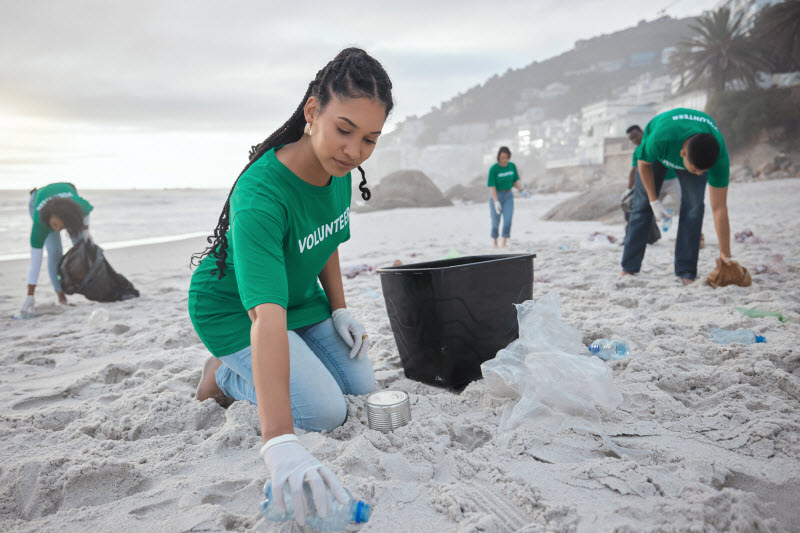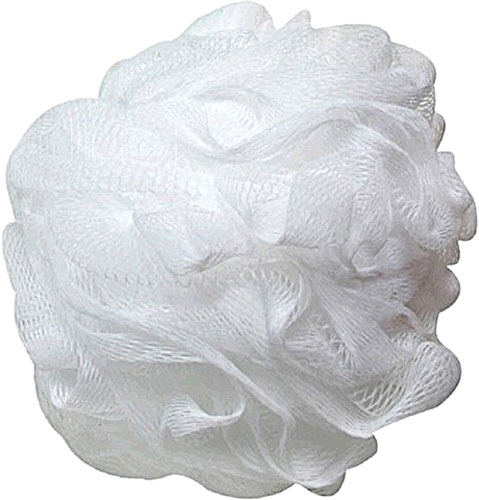[vc_row][vc_column][vc_column_text]Plastics cause a staggering amount of pollution around the world. Fortunately, we all can do things to reduce our dependence on plastic.
Before we explore how you can combat plastic pollution, consider these
statistics from the United Nations Environment Program that underscore our planet’s plastics peril:
- We produce 430 metric tons of plastic each year.
- 46% of plastic waste ends up in landfills, 22% becomes litter, 17% is incinerated and 15% is collected for recycling.
- Every day, the equivalent of more than 2,000 garbage trucks of plastic is dumped into oceans, rivers and lakes.

The effects of plastic pollution
“Even if you don’t see discarded plastic in your community, tiny
pieces of plastic have been found everywhere around the world, from the highest mountain peaks to the deepest ocean trenches,” says the Plastic Pollution Coalition. “Plastic is found in the water we drink, the food we eat, the air we breathe, the soil below us, and even inside of our bodies.”
Plastic also winds up in the bodies of marine animals. In fact, it’s estimated that more than 1 million marine animals — including birds, fish, sharks and turtles — are killed each year due to plastic debris in oceans.
“Unlike some other kinds of waste,
plastic doesn’t decompose,” says the National Oceanic and Atmospheric Administration (NOAA). “That means plastic can stick around indefinitely, wreaking havoc on marine ecosystems. Some plastics float once they enter the ocean, though not all do. As the plastic is tossed around, much of it breaks into tiny pieces, called microplastics.”
Making matters worse,
plastics contribute to climate change. The vast majority of plastics are made from petrochemicals that come from fossil fuels, according to the Center for International Environmental Law.
And as we know, fossil fuels are the biggest culprit in climate change. The U.N. Environment Program says fossil fuels account for more than 75% of global greenhouse gas emissions and nearly 90% of global carbon dioxide emissions.
How can you help reduce plastic pollution?
Now that you’ve got a better sense of the problem, what can you do to combat plastic pollution? Plenty.
Here are 17 tips courtesy of
Earth.org,
Greenpeace, the
National Environmental Education Foundation, the
Natural Resources Defense Council, the
Oceanic Society, the
Oregon Zoo, the
Plastic Pollution Coalition and
UNICEF.
- Avoid using plastic straws, lids, bags and takeout containers at restaurants.
- Buy in bulk. Ditch single-serve yogurt, travel-size toiletries and other single-use items in favor of items you purchase in larger containers.
- Rely on reusable cloth shopping bags instead of plastic shopping bags.
- Cut back on buying items in stores and elsewhere that are wrapped in a lot of plastic.
- Replace plastic items at home with alternatives made from natural materials. These alternatives include bamboo toothbrushes, glass jars and wooden toys.
- Revamp food storage. Rather than choosing plastic baggies, plastic wrap and plastic containers for food storage, opt for bento boxes, glass jars or glass containers.
- Compost food waste to avoid using plastic garbage bags.
- When you spot plastic litter outdoors, either recycle it or toss it in a trash can.
- If you forget to take your reusable cup to a coffee shop, ask that your coffee or tea be poured into a non-plastic mug.
- Stop buying bottled water. Close to 20 billion plastic bottles end up in the trash each year. As an alternative, drink water from reusable non-plastic containers.
- Stay away from products containing tiny pieces of plastic called These products include face scrubs, toothpaste and bodywash.
- Participate in an ocean, lake, river or stream cleanup. “This is one of the most direct and rewarding ways to fight ocean plastic pollution,” the Oceanic Society says.
- Stay away from plastic and paper tea bags, both of which contain plastic. Instead, buy loose tea in bulk and make your beverage with a tea strainer or infuser.
- Use natural sponges or loofahs. Most kitchen and bathroom sponges are made of plastic.
- Wash clothing only when necessary. One load of laundry can cause 700,000 bits of microplastics to be released into the environment.
- Support local, state and national initiatives to reduce plastic pollution, such as bans on single-use plastics.
- Encourage your city or town to install public stations for filling up reusable water containers.
Is recycling effective in reducing plastic pollution?
Recycling makes a dent in cutting back on plastic pollution, but only a small dent.
The MIT Climate Portal points out that
less than 10% of discarded plastics are recycled, partly because many plastic products are coated with non-recyclable materials.
Aggravating this situation: Recycling programs vary among communities, sometimes making it tough to determine which plastics can or cannot be recycled, according to the MIT Climate Portal. Furthermore, some people may find it difficult to decipher the recycling symbols on plastic products.[/vc_column_text][/vc_column][/vc_row][vc_row][vc_column][vc_text_separator title="Featured Products" border_width="2"][vc_row_inner equal_height="yes" content_placement="middle" gap="35"][vc_column_inner width="1/3"][vc_single_image image="174852" img_size="full" alignment="center" onclick="custom_link" img_link_target="_blank" css=".vc_custom_1714835284477{padding-right: 7% !important;padding-left: 7% !important;}" link="https://www.vitacost.com/mrs-meyers-clean-day-foaming-hand-soap-kit-pump-bottle-2-concentrated-refills-rain-water"][/vc_column_inner][vc_column_inner width="1/3"][vc_single_image image="174853" img_size="full" alignment="center" onclick="custom_link" img_link_target="_blank" css=".vc_custom_1714835301492{padding-right: 7% !important;padding-left: 7% !important;}" link="https://vitacost.com/senzacare-eco-friendly-toothbrush-adult-ultra-soft"][/vc_column_inner][vc_column_inner width="1/3"][vc_single_image image="174854" img_size="full" alignment="center" onclick="custom_link" img_link_target="_blank" css=".vc_custom_1714835317788{padding-right: 7% !important;padding-left: 7% !important;}" link="https://www.vitacost.com/natural-value-walnut-scrubber-sponge"][/vc_column_inner][/vc_row_inner][/vc_column][/vc_row]




